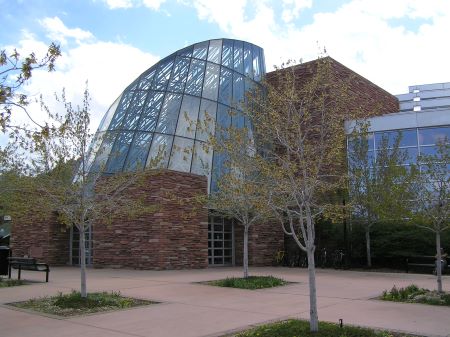The people of Boulder love their library. This should really come as no surprise, since Boulder is a highly literate city with an exceptionally well educated populace. For over a century residents have enjoyed the use of their library. In addition to the Boulder Public Library, locals also take advantage of the Boulder Bookstore, one of the country’s best independent booksellers.
Recently the Boulder Public Library has been the subject of disturbing revelations about management turnover, funding fumbles and reported interference by the City Manager’s office. The situation was mentioned briefly in the Daily Camera but covered much more thoroughly in the Library Journal, the national publication for library professionals.
Even though the library system is highly used and greatly appreciated by the citizenry this support has not been mirrored in city government. Maintenance has been deferred, a long-promised north branch was never built and morale problems have been escalating. Cutbacks in library funding have caused reductions in hours and days of operations, especially at the neighborhood branches. The turnover in staff, especially in senior management, has reached near-crisis proportions.
Much of the problem can be laid directly at the feet of the Boulder City Council. As part of a structural problem in city government the elected council does not sufficiently monitor and guide the appointed City Manager and her staff. When the staff periodically floats trial balloons about further cuts to library services the citizens of Boulder rise up in verbal arms and the City Council runs for cover. The suggested cuts are then removed from the table (for now).
An option now being discussed in the community is the creation of an independent library district, governed by an elected board with dedicated funding from a voter-approved library tax. The creation of the district would help eliminate interference from the city staff, combat indifference from the City Council and allow the library to properly plan for long range services. This approach flies in the face of recent desires stated by some city staff to eliminate all voter-dedicated funds in Boulder (such as those for open space) and put all tax revenues into the general fund, from which the staff can recommend funding for its favorite programs (not necessarily libraries). That might be a popular approach for city staff but not for the public.
Part of the problem with the library, and some other city departments, is a lack of knowledge on the part of some city staff members about Boulder’s history and principles. This arises from a seemingly constant policy of appointing department heads from outside the community. Often these new managers, though professionally proficient and well-meaning, stumble into blunders by making changes that are promptly rejected by the public. They don’t have the requisite local knowledge that makes for good decision making.
In the case of the Boulder Public Library, for example, a director was hired from North Carolina with little experience in managing a system as large as Boulder’s. He became the target for much library staff and public anger when he seemed to support closing the Meadows Branch Library, a trial balloon promptly shot out of the skies by a cowed City Council after the citizenry arose en mass. That director didn’t last long in Boulder and moved to what is hopefully a more conducive environment for his talents in South Carolina.
But the itinerate library director is only one member of a series of senior city staff members recruited to Boulder from places like North Carolina, Ohio, Washington State and Virginia. The failures to promote from within and allow career city employees the opportunity to achieve their personal professional goals locally creates turnover and damages morale. This doesn’t mean the new managers recruited from outside are not good choices, only that looking at the current staff should be the first priority in filling senior management vacancies.
Ultimately the problem comes down to structure. The antiquated city manager form of government is unaccountable and undemocratic. The citizens of Boulder should consider changes to the city charter to reduce the powers of the appointed staff and increase oversight by the elected City Council. The option of electing a mayor by the people, instead of from the City Council, should also be considered.
Until then, or until Councilors show a greater willingness to properly supervise staff and hold them accountable, budding disasters like the situation at the Boulder Public Library will continue to arise. The people of Boulder deserve better.



